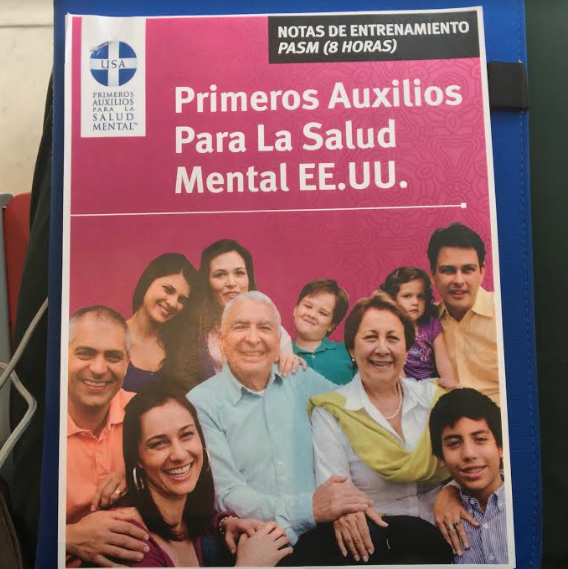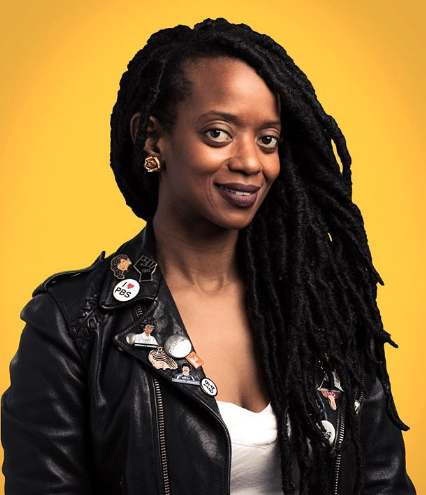Nelsan Ellis (Lafayette from HBO's True Blood).
Oh hey, Wonderfulperson,
Welcome to another Monday and to round of Mental Health Monday, your weekly dose of stories, resources, and motivation for your everyday life. On last week's situation, we covered depressed rappers and their fans, institutional racism in healthcare, why therapy isn't just for white folks, and shared some resources for facing mental health issues in the workplace. And we shouted out the Therapy For Black Girls podcast. Check it out.
"Nelsan Ellis' Family Shares Circumstances of 'True Blood' Actor's Death" by Ryan Parker [The Hollywood Reporter]
On the morning of Saturday July 8th, after four days in Woodhull Hospital, Nelsan was pronounced dead. Nelsan was a gentle, generous and kind soul. He was a father, a son, a grandson, a brother, a nephew, and a great friend to those that were lucky enough to know him. Nelsan was ashamed of his addiction and thus was reluctant to talk about it during his life. His family, however, believes that in death he would want his life to serve as a cautionary tale in an attempt to help others.
"11 Healthy Ways To Calm Your Anxiety" by Dr. Karen Shanks [Mind Body Green]
We all have those days when the to-do list seems too long, many people are demanding our attention at once, everything goes wrong, and it seems nothing is falling into place the way it was meant to. Feelings like this trigger the fight-or-flight response, which was helpful in cave-woman days when we needed a stress response to fuel our retreat from a threat, like a tiger, for example. But in our modern-day lives when the threats are different and constant, we have the same hormones and neurotransmitters coursing through our bodies, which often manifests as chronic anxiety.
"When Vanity Is Self-Care" by Bassey Ikpi [The Root]
I used my hair as a shield. It kept me from the rest of the world. Where people couldn’t accept “I can’t get out of bed” without a Bible verse or platitude, they accepted “I can’t go! My hair is a mess!” with knowing. My hair was an acceptable excuse for missing gatherings and “I’m in town for a few days” messages.
Vanity is a common denominator.
"The Rwandan prescription for Depression: Sun, drum, dance, community" [Under The Blue Door]
We had a lot of trouble with western mental health workers who came here immediately after the genocide and we had to ask some of them to leave.
"True Confessions: I Hate Therapy" by Soleil Santana [XO Soleil]
When he mentioned me being in a manic episode, I had to really think about it. It's a been a while since I've been in a hypomanic episode and because they don't happen as often, I tend to forget about that part of my illness. I'm so used to being in a depressive episode at any given point that hypomanic episodes tend to sneak up on me. I started putting two and two together: my irritability, the sudden quitting of my job without really thinking, nonstop racing thoughts and ideas, etc. But I wouldn't have even realized I was in that type of episode if it wasn't for those ten minutes with my therapist.
Though needed, however, I'm still uncomfortable with therapy...
"11 Brutal Lies Your Anxiety Constantly Tells You About Yourself" by Lauren Jarvis-Gibson [Thought Catalog]
3. That you should shut yourself off from the world.
Anxiety doesn’t want you to feel fulfilled in your life. It doesn’t want you to be happy or mentally stable either, and tells you that you shouldn’t waste anyone’s precious time. Anxiety tells you that you should probably cancel those plans, because there’s no point in disappointing people (again).
"Sometimes, Staying Woke Means Staying Away' by Bassey Ikpi [The Root]
There is often guilt when there is no movement or room for marches, but it doesn’t mean that we don’t care or that we have grown complacent; it only means that for some of us, the mere ability to find morning is a radical act of resistance. We simply cannot afford to melt and sigh into the latest thing that has broken the world open. Some of us need permission to turn away, to turn off, walk away and spend time in spaces that hold us steady.
The balance is not easy even for the most stable among us.
"11 Times Black Celebs Opened Up About Dealing With Mental Health Issues" by Zeba Blay [HuffPo]
There’s an unfortunate stigma around mental illness, which results in a culture of silence around the subject. In the black community, that culture of silence is twofold, thanks to narratives and stereotypes that place black men and women in boxes of strength and invulnerability that leave little room for reaching out.
Luckily, in recent years, more and more black people, including those in the public eye, have opened up about dealing with and overcoming the struggles of mental illness.






























